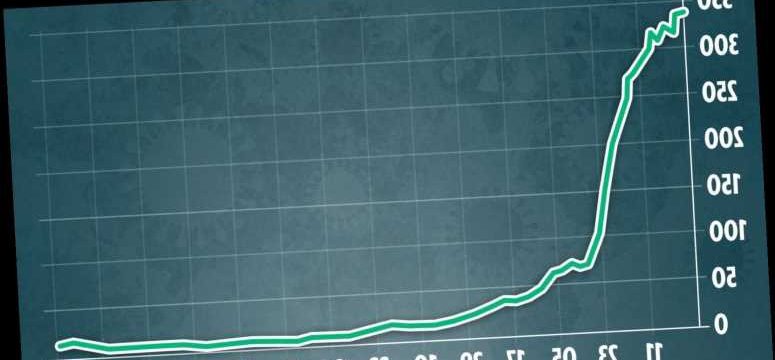CORONAVIRUS cases in the UK have hit over 4,000 for the first time since May, but experts claim it won't be as bad as the peak of the pandemic in April.
A further 3,991 cases were recorded overnight in the biggest rise since May 8 – as health chiefs battle to curb the surge in infections.
⚠️ Read our coronavirus live blog for the latest news & updates
Infections have climbed 40 per cent in a week and officials claim this increase is down to more testing.
Sites across the country have been flooded with people trying to access tests.
Health secretary Matt Hancock revealed earlier this week that tests would be rationed for those who needed it most.
The rolling-seven day average of infections each day currently sits at 3,286.
This is a dramatic increase from last week when it sat at 2,358.
At the peak of the pandemic in April there were around 6,000 infections per day.
At this point testing had not been at the scale it is today – where 200,000 swabs are being carried out daily.
In April around 15,000 people were being swabbed daily and these were limited to people who were presenting with severe illness.
As cases rise, it was revealed yesterday that no tests were available in 46 out of 48 of the nation’s worst Covid hotspots.
One expert said that it's unlikely that we will reach the stage we did at the pandemic.
Speaking to MailOnline, Dr Andrew Preston, an infectious disease expert based at the University of Bath said while the data is troubling, we "are not near the stage of the peak".
He added: "Don’t think we will end up back in the situation we had in March and April as people are more wary now."
Other experts have blamed a rise in activity for a rise in cases.
So far in the UK over 41,000 people have died from the virus and cases have started to increase.
At the start of lockdown in March, businesses and offices were closed in order to stop the spread of the virus.
Then restrictions eased with pubs and restaurants opening during the summer.
Last month the government also urged people to get back to the office as businesses continue to struggle due to a lack of footfall.
Kids also went back to school in a bid to get the nation back to normality.
Prof Heneghan questioned what outcome the government expected after increased levels of activity.
He added that increased activity at the end of summer always leads to infections and said “it’s not rocket science”.
This week, a new report by Oxford University public policy researcher Toby Phillips suggested Rishi Sunak's Eat Out to Help Out may be behind the huge surge in new positive infections in the UK.
He also said it could have "encouraged extravagant levels of eating out" – as eateries had already almost recovered from lockdown when the scheme began.
At the same time the scheme was running, virus cases began to spike, the report says.
The rapid rise has overwhelmed capacity and caused some regional lockdowns, it concludes.
Social restrictions
"Transmission rates were already creeping up in early August, before there could have been any effect from the Eat Out scheme," it says.
"But the rapid acceleration in the proportion of detected positive cases at the start of September is consistent with cases where infection occurred in mid-August."
In order to curb the spread, the government has now implemented the rule of six.
Prime Minister Boris Johnson argued that social restrictions and a dramatic increase in testing is the only option at the moment to avoid a return to total shutdown.
And after a week of testing chaos, he has pledged to dramatically hike capacity to half a million tests every day by the end of October.
Back in March, Mr Johnson compared the Covid cases graph to a sombrero hat — urging Britain to “squash it” by lockdown.
Now he warns that the graph is starting to look like a camel’s back, so it’s time to act again.
The PM said: “All this is to say that: Christmas we want to protect, and we want everyone to have a fantastic Christmas.
“But the only way to make sure the country is able to enjoy Christmas is to be tough now. So if we can grip it now, stop the surge, arrest the spike, stop the second hump of the dromedary, flatten the second hump."
Source: Read Full Article




